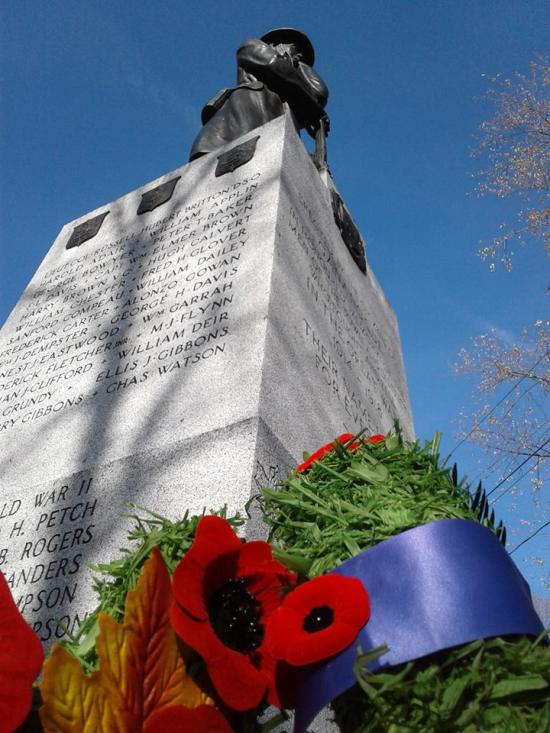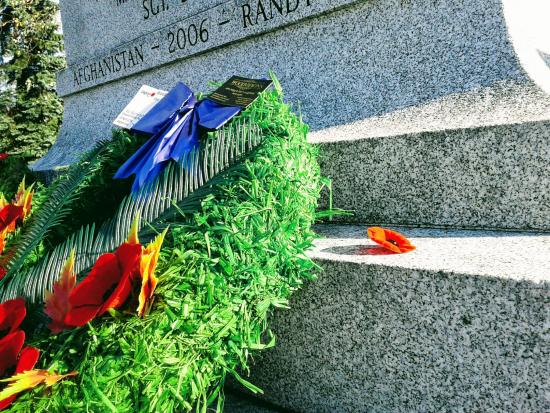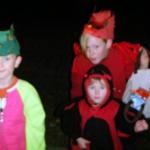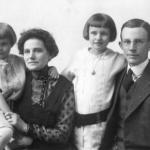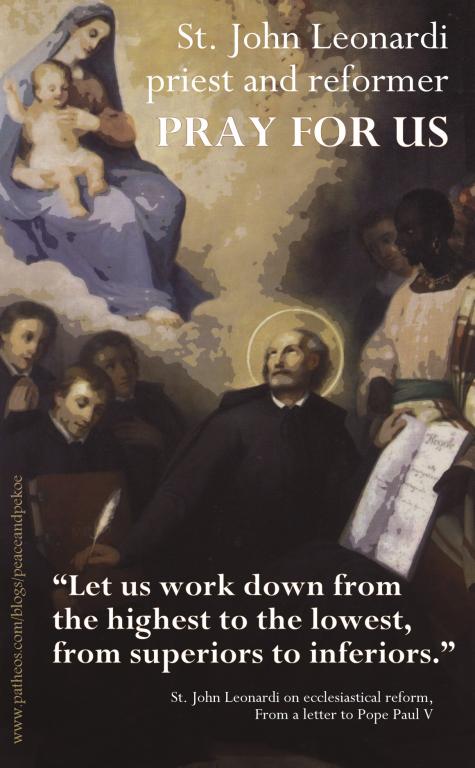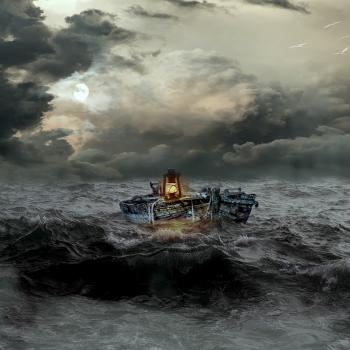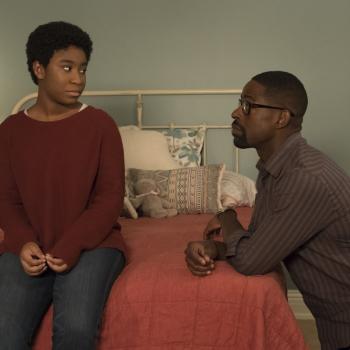“They shall grow not old, as we that are left grow old:
Age shall not weary them, nor the years condemn.
At the going down of the sun and in the morning
We will remember them.”
“We will remember them.” The crowd murmurs in a quiet echo, after the verse is read.
It gives me shivers, every year.
Here in our small town, we’re down to one wreath still carried by a WWII vet. One was carried up by the sister of one of the deceased named on our cenotaph. One by the mother of the one local gentleman who fell in Afghanistan. And then every organisation, school, church, fraternal order, and so on in town, so many it seems like there must be a wreath for each and every name–but there isn’t, I don’t think, because our little town cenotaph has 84 names on it, and if you had a wreath for each of those names it would be a lot more than a double row all around the base of the monument.
They read an account of a few of those whose names are engraved for us to remember. The brothers-in-law who married sisters and never lived to see the little cousins–their babies–who were born shortly after they left for the front in 1914. The med school graduate who volunteered and gave up a promising career. The two airmen who died in accidents while training other airmen.
It was cold out this year, though last year was worse, grey and windy. Last year the band faltered halfway through the laying of the wreaths. They play Abide With Me over and over again during the laying of the wreaths, but there wasn’t much sun last year and one by one the fingers playing those trumpets and saxes and horns grew too stiff to continue. I was standing in the bandstand with the choral society, all of us humming the song, in harmony, because you can’t get a bunch of choir people together and play a familiar hymn and expect them not to at least hum along. As the band slowed and faltered and faded out, the humming grew louder and more confident, our accompanist warmed his fingers, found the key and began playing along, and as the last horn dropped out, 40 voices took over.
Hold Thou Thy cross before my closing eyes
Shine through the gloom and point me to the skies
Heaven’s morning breaks, and earth’s vain shadows flee
In life, in death, o Lord, abide with me
There was enough sun this year to warm the horns and the fingers holding them, but I marvelled as I always do at the ranks of men in uniform, cadets from the local military college, soldiers from the Canadian Forces Base, local veterans from various branches, standing to military order and precision in the November cold while the rest of us fidget and huddle in our layers of coats and scarves and rub our hands together to keep them from turning blue.
But we all stay, through the prayers and poems, the Last Post and the laying of wreaths, the addresses and the reading of all 84 names from the memorial. They are listed in our programs, with office and age, from Private William Dailey, age 15 when he died in the Great War, to Flying Officer William Thomson, who was 43 when he died a quarter decade later in the Second World War. I wonder, briefly, whether they were boys together, the Billy who must have lied about his age to volunteer and die at 15, and the Billy who lived through that first war only to die, in the midst of his life, in the next.
The back page of the program contains the poem In Flanders Fields, by John McCrae, another familiar part of the ritual of this day, a poem written by a Canadian soldier before his death in the first World War that Canadian schoolchildren have been memorising for…probably a full century, now. I’ve taken to posting my reply to it every year. It’s a minute past midnight as I write this now, so I’m a bit late to have it up on Remembrance Day itself, but here it is, my own contribution to the ritual of the day. November is, for Catholics, the month of the dead, when we pray for those who have passed and ask them in their turn to pray for us. In that spirit, I offer this verse, addressed to the poet-soldier who has spoken to me every November of my life.
The Torch
You are the dead. Long years ago
you fought, and died, were laid below
the crosses, there in Flanders Field.
Ninety Novembers now have pealed
Church bells and speeches for the dead
by dwindling rank of comrades led,
to honor you – – John McCrae,
and all who stood in danger’s way.
Your poem — it haunts me now as when
I memorized first, at ten.
(So many children have). But I
— I hear the larks sing in the sky
and shiver at the dead below
the crosses, laid in Flanders Field.
…And wonder at the final verse.
Would you have thought of us the worse?
Have we kept faith? Is our torch bright?
Or are we too ashamed to fight,
call evil false or good things true
like those young men who stood with you
to Flanders Field.
We are the living – you are the Dead,
not for you the poppies red,
blooming today for us below.
This ragged torch is burning low
but brave young men can still be found
hallowing some foreign ground
with earnest blood, while I at home
peck away at my short poem.
Lt. Col. John McCrae-
remember us, this November day.
